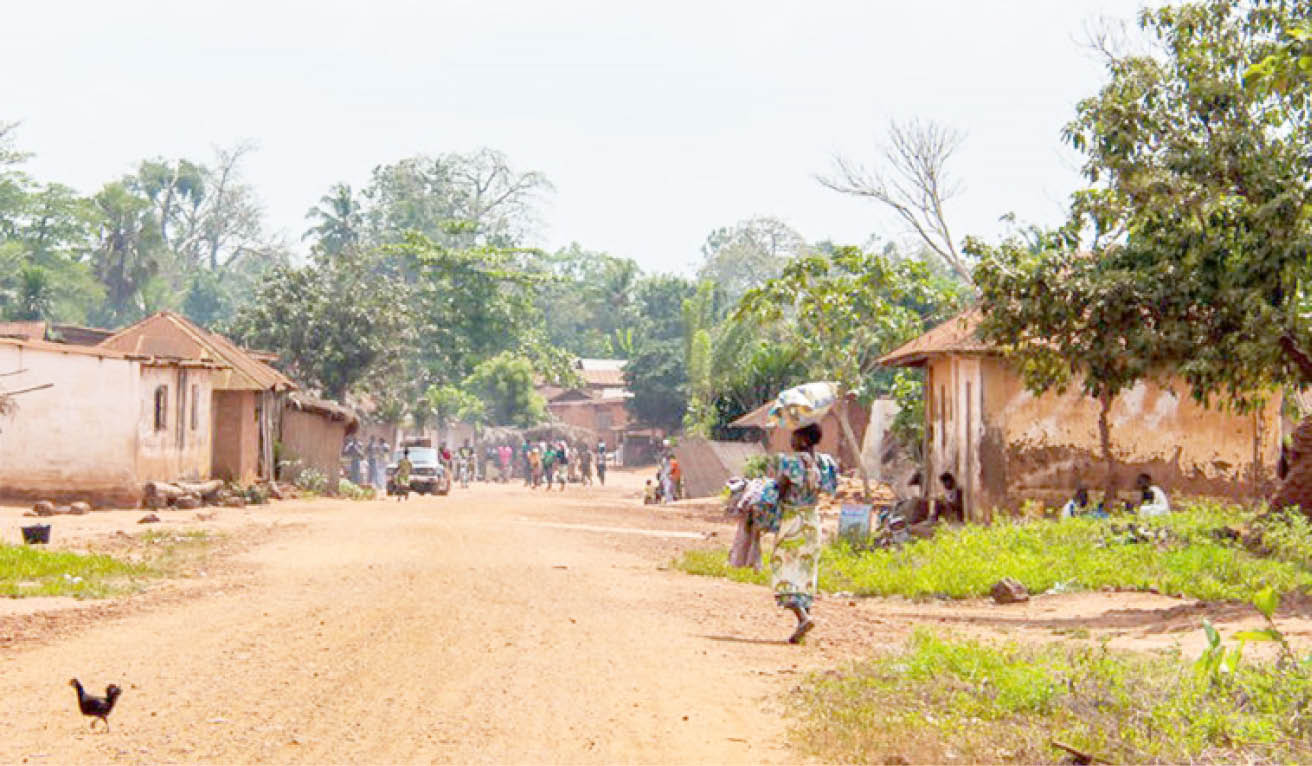Column No.6: An ‘escape’ from Togo in retrospect (IV)
I tried to keep calm while bringing out some cash and the soldier was irked by what he felt was my slowness. “Give me money!” he bellowed in a thunderous, savage voice. He specified the amount as 150,000 CFA Francs, and I stuffed the lot into his palms. While he squeezed the money into his chest […]

I tried to keep calm while bringing out some cash and the soldier was irked by what he felt was my slowness. “Give me money!” he bellowed in a thunderous, savage voice. He specified the amount as 150,000 CFA Francs, and I stuffed the lot into his palms. While he squeezed the money into his chest pocket, he dimmed his eyes and moved even closer to me and spat “Igbo?” I replied negatively, which angered him more. He thundered “Igbo?” and I still replied “No.” The same back-and-forth trade went on till a point when Akinjide joined me, trying to explain that I was not an Igbo man. Tchalla, apparently, had reached meltdown and fired his rifle a few inches shy of my neck, and hollered “Igbo!” yet again.
This time I kept quiet. The soldier asked for my ID card and I showed him, which seemed to satisfy him. He muttered something about Igbo people not usually bearing my name, then he asked me what part of Nigeria I was from. “North,” I said, to which he asked “Hausa?” After I said “Yes,” he threw my accreditation card back to me and gestured at me and a shaken-and-stirred Temi to go. As we made to move, we paused to see how Akinjide was faring, but Tchalla roared at us to get a move on. We rode slowly so our companions could catch up with us, and they eventually did. We rode the rest of the short journey in silence, until I broke it with a question which had been nagging me. I asked Temi why I was attracting so much aggravation due to my, if you please, Igbo-ness. Temi squinted, before finally managing to patch together a reply: “Igbo people bad.” I pressed him to explain further, but he just looked away. When Temi and his fellow Okada man dropped us at the Togolese portion of Hillakondji, we thanked them again and again.
- I was pressured to reject national honour – Kaigama
- North East: 755 civilians killed by explosive ordinance in 6 years – Minister
Having found two suitable guides for the final exit from Togo , we proceeded. By this time, I was already more jaded than Akinjide and I put him through all the motions. Local youth, armed gendarmes, border patrol – you name it, we passed through it. Finally, we were on the other side and I felt so relieved. I noticed a group of Beninese young men standing in front of a house we were trudging past. As I walked on, one of them raised a hand high as if to smack me on my face and he sneered “Igbo.” I paused, eyeing the youngster fiercely and that probably made him change his mind. I just could not fathom why these people felt this way about Igbos.
We walked on to the nearby motor-park and got into a taxi headed for the Seme border. We reached Seme, and after effortlessly gliding through customs on an Okada whose rider tipped officials with as little as N50, we were walking on Nigerian soil. Akinjide switched on his handset, and a few minutes later, a call came through and my friend received the news that his wife, Yeni, had put to bed a bouncing baby boy, the third one in a row. Akinjide called his mother in a re-enactment of the now-infamous TV advert in which a new dad called his mother to announce the birth of a son in pidgin English. “Mama, na boy!” said Akinjide, ecstatically. I congratulated him and slumped further into the backseat of our taxi, feeling relieved, relaxed and for the first time in many days, safe.
Concluded
Note: Like I said in the introduction of this deep-dive piece, it was written when the world was a completely different place, almost two decades ago. Some years after my ‘escape’, a Togolese diplomat friend explained to me the situation with my fellow Nigerians thus: “It’s a simple case of what is popularly called ‘playa-hating’ in hip-hop circles, which is when someone who isn’t successful materially decides to hate someone who is. The Igbo’s in my country usually are there specifically to trade, and once their business is successful and money flows, women are naturally drawn to them. That, naturally, bruises the egos of their Togolese hosts. You can imagine what happens next”. While it is a strikingly sexist attempt to explain the situation, it does sound in line with the publicised triggers and causes of ‘xenophobia’ against Nigerians in other African countries. Heck, during a recent encounter with a friend’s Togolese chef, he pretty much repeated the sentiments of his violent compatriots from many years ago, summing it up with a simplistic, yet problematic and dangerous-sounding ‘Nigerians too dey do gra-gra.’ Make of that what you will. I strongly believe it is playa-hating.
